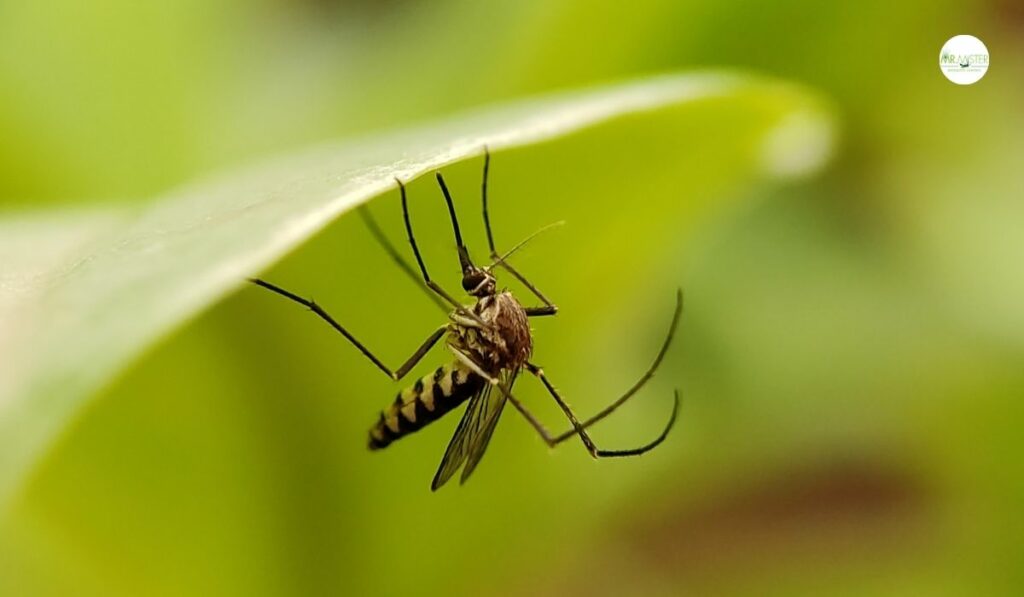What factors are considered when developing a customized mosquito control plan for a commercial property?
Serving Atlanta, Georgia and Surrounding Areas
Mosquitoes are not only annoying pests but also potential vectors for various diseases, making effective mosquito control essential for commercial properties.
Unlike residential areas, commercial properties have unique features and requirements that must be considered when developing a customized mosquito control plan.
In this article, we’ll explore the key factors to consider when devising a tailored mosquito control strategy for commercial properties.
Property Size and Layout:
The first factor to consider is the size and layout of the commercial property.
Larger properties with extensive landscaping, water features, and outdoor seating areas may require more comprehensive mosquito control measures than smaller properties.
Understanding the layout helps identify high-risk areas where mosquitoes are likely to breed and thrive.
Surrounding Environment:
The surrounding environment plays a significant role in mosquito population dynamics.
Commercial properties located near bodies of water, dense vegetation, or areas with poor drainage are more susceptible to mosquito infestations.
Factors such as nearby wetlands, rivers, or ponds can contribute to increased mosquito activity and breeding sites.
Landscaping and Water Features:
If not properly managed, landscaping elements such as ponds, fountains, and ornamental pools can provide ideal breeding grounds for mosquitoes.
Standing water, even in small amounts, can attract mosquitoes to lay their eggs.
Incorporating mosquito-resistant landscaping practices, such as using plants that repel mosquitoes or installing mosquito traps, can help mitigate breeding sites.
Outdoor Structures and Amenities:
Commercial properties often have outdoor structures and amenities such as patios, gazebos, and outdoor dining areas that attract visitors.
These areas are prime targets for mosquito control efforts as they provide resting and feeding sites for mosquitoes.
Implementing measures such as mosquito repellent systems, barrier treatments, or strategically placed traps can help protect patrons and employees from mosquito bites.
Operational Considerations:
When developing a mosquito control plan for commercial properties, operational considerations are crucial.
Factors such as business hours, customer flow, and accessibility need to be taken into account to minimize disruptions while implementing control measures.
Flexible scheduling of mosquito treatments during off-peak hours or when the property is closed can help ensure effectiveness without inconveniencing customers or employees.
Regulatory Compliance:
Compliance with local regulations and environmental guidelines is essential when implementing mosquito control measures on commercial properties.
Some regions have restrictions on the use of certain pesticides or require permits for mosquito control activities near protected areas.
Working with certified pest control professionals who are knowledgeable about local regulations ensures that the control plan is both practical and compliant.
Integrated Pest Management (IPM) Approach:
An integrated pest management approach combines multiple strategies to control mosquitoes effectively while minimizing environmental impact.
This holistic approach may include habitat modification, biological control methods, larvicides, adulticides, and community engagement.
Tailoring an IPM-based mosquito control plan to suit the specific needs and conditions of the commercial property maximizes its efficacy and sustainability.
Seasonal Variations:
Mosquito activity varies throughout the year, with peak populations typically occurring during warmer months.
Understanding seasonal fluctuations in mosquito populations is essential for developing an effective control plan.
In regions with distinct seasons, mosquito control efforts may need to be intensified during the summer months when mosquito activity is at its highest.
Additionally, monitoring seasonal trends allows for timely adjustments to control strategies to maintain efficacy.
Surveillance and Monitoring:
Regular surveillance and monitoring of mosquito populations are critical components of an effective control plan.
Utilizing mosquito traps, surveillance data, and monitoring tools helps identify breeding sites, assess population densities, and track changes in mosquito activity over time.
This information enables pest control professionals to tailor control measures based on real-time data, improving the overall effectiveness of the mosquito control program.
Stakeholder Communication:
Effective communication with stakeholders, including property owners, managers, employees, and patrons, is essential for the success of a customized mosquito control plan.
Providing information about mosquito control measures being implemented, potential risks associated with mosquito-borne diseases, and ways individuals can protect themselves from mosquito bites fosters cooperation and support for control efforts.
Clear signage, educational materials, and proactive outreach initiatives can raise awareness and promote community involvement in mosquito control initiatives.
Environmental Impact Assessment:
Assessing the environmental impact of mosquito control measures is crucial for minimizing unintended harm to non-target organisms and ecosystems.
Specific control methods, such as chemical pesticides, can have adverse effects on beneficial insects, aquatic life, and wildlife if not applied responsibly.
Conducting an environmental impact assessment helps identify potential risks and allows for the selection of control strategies that are effective yet environmentally sustainable.
Utilizing environmentally friendly control methods, such as biological control agents or larvicidal treatments with minimal ecological impact, aligns with sustainable pest management practices and ensures long-term environmental stewardship.
Budget and Resource Allocation:
Developing a customized mosquito control plan involves budgeting for various resources, including personnel, equipment, supplies, and ongoing maintenance.
Assessing the financial implications of different control methods and prioritizing resource allocation based on cost-effectiveness and efficacy is essential for optimizing control efforts within budget constraints.
Working with experienced pest control professionals who can provide cost estimates and guidance on resource allocation helps ensure that the mosquito control plan is both practical and financially sustainable in the long run.
Conclusion:
Developing a customized mosquito control plan for commercial properties requires careful consideration of various factors, including property size and layout, surrounding environment, landscaping features, outdoor structures, operational needs, regulatory compliance, integrated pest management principles, seasonal variations, surveillance and monitoring, stakeholder communication, environmental impact assessment, and budget and resource allocation.
By addressing these factors comprehensively and proactively, commercial property owners and managers can effectively manage mosquito populations and create safer and more enjoyable environments for patrons and employees alike.
To learn more about implementing a tailored mosquito control plan for your commercial property, contact our team at Mr. Mister Mosquito Control.
FAQs
What factors are considered when developing a customized mosquito control plan for a commercial property?
Factors such as property size and layout, surrounding environment, landscaping and water features, outdoor structures and amenities, operational considerations, regulatory compliance, integrated pest management (IPM) approach, seasonal variations, surveillance and monitoring, stakeholder communication, environmental impact assessment, and budget and resource allocation are all taken into account when devising a tailored mosquito control strategy for commercial properties.
Why is the property size and layout important in developing a mosquito control plan?
The size and layout of the commercial property determine the extent of mosquito control measures needed. More significant properties with extensive landscaping and outdoor amenities may require more comprehensive strategies to address potential breeding sites and resting areas for mosquitoes.
How does the surrounding environment affect mosquito control efforts?
Commercial properties located near bodies of water, dense vegetation, or areas with poor drainage are more prone to mosquito infestations. Factors such as nearby wetlands, rivers, or ponds contribute to increased mosquito activity and breeding sites, necessitating tailored control measures.
What role do landscaping and water features play in mosquito control?
If not managed properly, landscaping elements like ponds, fountains, and ornamental pools can serve as breeding grounds for mosquitoes. Implementing mosquito-resistant landscaping practices and employing control measures can help mitigate breeding sites and reduce mosquito populations.
How are outdoor structures and amenities addressed in a mosquito control plan?
Outdoor structures and amenities such as patios and dining areas attract visitors and provide resting sites for mosquitoes. Implementing measures like repellent systems, barrier treatments, and strategic traps can help protect patrons and employees from mosquito bites.
Why are operational considerations important in mosquito control planning?
Operational factors like business hours and customer flow need to be considered to minimize disruptions while implementing control measures. Flexible scheduling of treatments during off-peak hours ensures effectiveness without inconveniencing customers or employees.
What is the significance of regulatory compliance in mosquito control?
Compliance with local regulations and environmental guidelines ensures that control measures are both practical and legally sound. Working with certified pest control professionals who are familiar with local regulations helps ensure compliance.
What is an integrated pest management (IPM) approach to mosquito control?
An IPM approach combines multiple strategies to control mosquitoes effectively while minimizing environmental impact. This holistic approach may include habitat modification, biological control methods, larvicides, adulticides, and community engagement.
How do seasonal variations influence mosquito control efforts?
Mosquito activity varies throughout the year, with peak populations typically occurring during warmer months. Understanding seasonal fluctuations helps in intensifying control efforts during peak activity periods.
Why is surveillance and monitoring necessary in mosquito control?
Regular surveillance and monitoring help identify breeding sites, assess population densities, and track changes in mosquito activity over time, allowing for timely adjustments to control strategies.
How does stakeholder communication contribute to the success of a mosquito control plan?
Effective communication with stakeholders fosters cooperation and support for control efforts. Providing information about control measures and mosquito-borne diseases raises awareness and promotes community involvement.
Why is an environmental impact assessment necessary in mosquito control planning?
Assessing the environmental impact helps minimize harm to non-target organisms and ecosystems. Selecting control strategies with minimal ecological impact aligns with sustainable pest management practices.
What role do budget and resource allocation play in mosquito control planning?
Budgeting for resources and prioritizing allocation based on cost-effectiveness ensures that the control plan is both practical and financially sustainable in the long run. Working with experienced professionals helps optimize resource utilization.
* Schedule a Free Mosquito Control Consultation – 404-941-0720 *
* Guaranteed Results * 100% Biodegradable * Locally Owned




